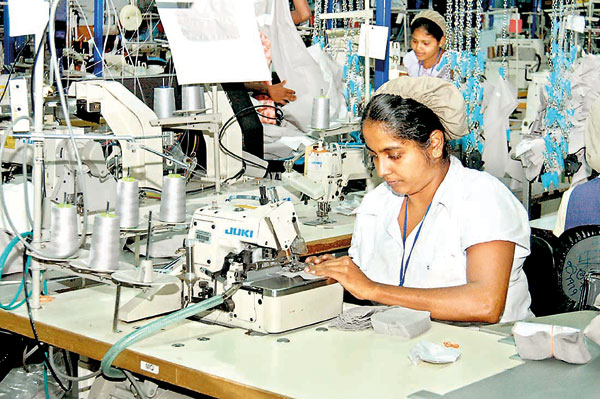UK’s closed door and “open world”
View(s):How do the people of the UK feel about “Brexit” once it happens? Brexit – the UK’s departure from the European Union (EU), was initially scheduled to take place on Friday, March 29, but postponed to May 22. The reason is the fact that even after more than two years of preparation, disintegration still remains more difficult than integration.
 If people of the UK knew how difficult and costly it is going to be, many would have opted to choose otherwise. However, it is a democracy in which people often have to regret about the democratic decisions they made earlier. There is also growing demand to revoke Brexit with another referendum.
If people of the UK knew how difficult and costly it is going to be, many would have opted to choose otherwise. However, it is a democracy in which people often have to regret about the democratic decisions they made earlier. There is also growing demand to revoke Brexit with another referendum.
UK residents – in fact-, not everybody but a little more than half of those who voted and only a 37 per cent of registered voters, decided to leave the EU at the referendum on June 23, 2016. Bowing to the people’s voice, the UK government started preparing for its departure from the EU.
While politically everyone has been trying to find ways and means of agreeing to or disagreeing to the modes operandi, the economy has been already feeling the pinch of the departure. Almost all the news and documentaries originating from the UK are already portraying that the economy is on reverse gear.
Let’s have a look at what is going to happen, and why it happens. In answering the question, I chose to confine myself to the economics of the issue, but there is always a political dimension in economics too. Let me elaborate a couple of case studies first.
Higher food prices
Trade within EU is free from tariffs so that over half a billion people living in 28 member countries of the EU have the privilege of buying the goods of “best quality” at “best price”. About 30 per cent of food consumed in the UK comes from the rest of the EU member countries. While the UK also produces about half of its food at home, all the other countries together supply only the balance of 20 per cent of the food.
After leaving the EU, imports from the EU to the UK would be taxed with tariffs under the rules and regulations of the World Trade Organisation (WTO). This means the prices of imports from EU countries now would rise by around 10 – 30 per cent of their value.
Imported food prices are, therefore, likely to go up at least by 10 per cent. And the UK consumers have to pay for higher prices for food as well as for all imports from EU countries.
Motor car prices
For instance, let’s have a look at the motor car sales in the UK. About 75 per cent of the motor cars driven by UK residents are imported from the EU countries, while the balance 25 per cent includes motor cars imported from the non-EU countries and those produced in the UK.
In 2017, the UK reported over 2 million motor car sales while it imported 1.5 million from the EU. Sales of motor cars produced within the UK accounted for 335,000, while most of these home-made cars are also the foreign brands such as BMW, Toyota, Nissan, Honda and, Tata.
After leaving the EU as all imports from there to the UK should be subject to normal tariffs, motor car prices in UK are also bound to rise.

File picture of a worker at a garments factory.
Maintaining zero tariffs?
One might ask the question whether the UK can still maintain zero tariffs on imports from the EU so that there won’t be an increase in domestic prices after leaving the EU. As UK imports more from the EU than the other countries in the world, the anticipated increase in import prices for UK residents is substantial and widespread. Therefore, the above question is a valid one.
The answer is simple: Under the WTO rules and regulations, the UK cannot adopt different tariffs discriminating among WTO member countries. If the UK chose to do so, then it also has to apply the same rule for imports from other countries which is apparently a good move for all other WTO-member countries exporting to the UK.
Exporting to EU
As far as international trade is concerned, EU member countries trade more within the EU than with the rest of the world. This is an indicator to show how deeply EU countries are integrated with one another sharing mutual benefits. The UK exports about 44 per cent of its total exports to EU countries; in 2017, the UK exported £274 billion worth goods and services to EU countries.
Leaving the EU would affect UK exports to the EU as well, because these exports will be taxed thereafter. This means that UK exports will be more expensive in the EU eroding their competitiveness against other EU products.
Even if the EU countries are intentionally not willing to do so, effectively they all have to obey WTO non-discriminatory trade obligations.
Investment
Apart from export and import trade, investment is another important area that would be affected by the break-up of the UK from the EU. By 2010, the UK had $1 trillion foreign direct investment (FDI) stock, which increased to over $1.5 trillion by 2017; however, in 2017, the UK has attracted $15 million worth FDI only.
Being a member of the EU is an important determinant of FDI inflows to the UK due to free market access to the European market. This attractiveness is expected to disappear with the UK’s departure from the EU. Therefore, it is better for investors to choose another EU member country for investment rather than choosing the outgoing UK as the investment location.
The issue has affected not only the expected FDI inflows, but also the existing businesses. As their imports as well as exports are envisaged to be costly they are already on the verge of pulling out their businesses from UK and relocating them to other EU countries even before Brexit.
For instance, it was reported early this year that more than 250 companies were already in negotiation with the Dutch authorities on moving their operations from the UK to the Netherlands. Last year the Netherlands had already lured 42 companies and their 1923 jobs from the UK. As investment moves away, people lose jobs too.
Brexit with no-deal
So far the UK Prime Minister Theresa May has attempted to execute the Brexit with a fresh deal with the EU which was rejected a couple of times at both ends – the EU parliament as well as her own UK parliament. One of the reasons why the UK needs a deal before the departure is to minimise the envisaged economic losses of Brexit.
An essential feature of the “deal” is to arrange a lower level of integration such as a Free Trade Area (FTA) or a Customs Union. With a FTA, the UK can retain free trade in goods and services with EU; with a Customs Union, in addition to free trade the UK can also keep common external tariffs with the EU. With such deals, the UK can do away with the most sensitive element of the free movement of people, but secure some of the economic benefits of integration such as free trade and investment.
Leaving for good
The irony is that all attempts for such a deal have been defeated and that there are only two months to go. If there is no deal even by that time, then the UK has to leave without any agreement with the EU. What would be the outcome?
UK has a choice. One is to face all negative consequences of economic isolation while the other is to embark on a “unilateral” free trade opening the economy to the entire world and avoid the economic fallout.
(The writer is a Professor of Economics at the University of Colombo and can be reached at
sirimal@econ.cmb.ac.lk).


